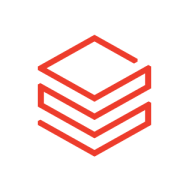

Databricks and TIBCO Data Science compete in the data science and analytics space. Databricks appears to have an advantage in scalability and collaborative features, whereas TIBCO Data Science is favored for its comprehensive analytics and integration capabilities.
Features: Databricks offers collaborative features, seamless integration with data sources, and strong machine learning capabilities. TIBCO Data Science focuses on providing analytics options, real-time insights, and robust integration within enterprise environments.
Room for Improvement: Databricks could improve integration with enterprise systems, offer more advanced analytics options, and enhance its real-time data processing capabilities. TIBCO Data Science may need to work on reducing deployment time, improving its cost-effectiveness, and offering more agile scaling options.
Ease of Deployment and Customer Service: Databricks provides a cloud-based deployment model that allows quick setup and flexible scaling, with a responsive customer support system. TIBCO Data Science offers both on-premise and cloud-deployment models with robust integration with enterprise systems, which may require more initial setup time, along with dedicated service support.
Pricing and ROI: Databricks presents a flexible pricing model with lower initial setup costs, focusing on delivering improved ROI through scalability. TIBCO Data Science may involve higher initial investment but delivers high ROI for companies needing comprehensive data solutions, potentially offering greater long-term value for complex data needs.
| Product | Market Share (%) |
|---|---|
| Databricks | 13.9% |
| TIBCO Data Science | 0.7% |
| Other | 85.4% |

| Company Size | Count |
|---|---|
| Small Business | 25 |
| Midsize Enterprise | 12 |
| Large Enterprise | 56 |
Databricks offers a scalable, versatile platform that integrates seamlessly with Spark and multiple languages, supporting data engineering, machine learning, and analytics in a unified environment.
Databricks stands out for its scalability, ease of use, and powerful integration with Spark, multiple languages, and leading cloud services like Azure and AWS. It provides tools such as the Notebook for collaboration, Delta Lake for efficient data management, and Unity Catalog for data governance. While enhancing data engineering and machine learning workflows, it faces challenges in visualization and third-party integration, with pricing and user interface navigation being common concerns. Despite needing improvements in connectivity and documentation, it remains popular for tasks like real-time processing and data pipeline management.
What features make Databricks unique?In the tech industry, Databricks empowers teams to perform comprehensive data analytics, enabling them to conduct extensive ETL operations, run predictive modeling, and prepare data for SparkML. In retail, it supports real-time data processing and batch streaming, aiding in better decision-making. Enterprises across sectors leverage its capabilities for creating secure APIs and managing data lakes effectively.
TIBCO Spotfire Data Science is an enterprise big data analytics platform that can help your organization become a digital leader. The collaborative user-interface allows data scientists, data engineers, and business users to work together on data science projects. These cross-functional teams can build machine learning workflows in an intuitive web interface with a minimum of code, while still leveraging the power of big data platforms.
We monitor all Data Science Platforms reviews to prevent fraudulent reviews and keep review quality high. We do not post reviews by company employees or direct competitors. We validate each review for authenticity via cross-reference with LinkedIn, and personal follow-up with the reviewer when necessary.